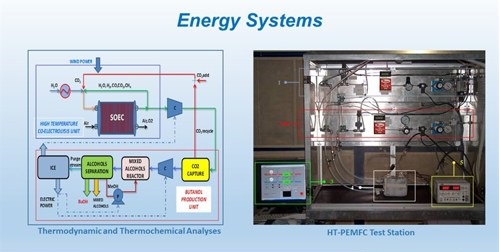
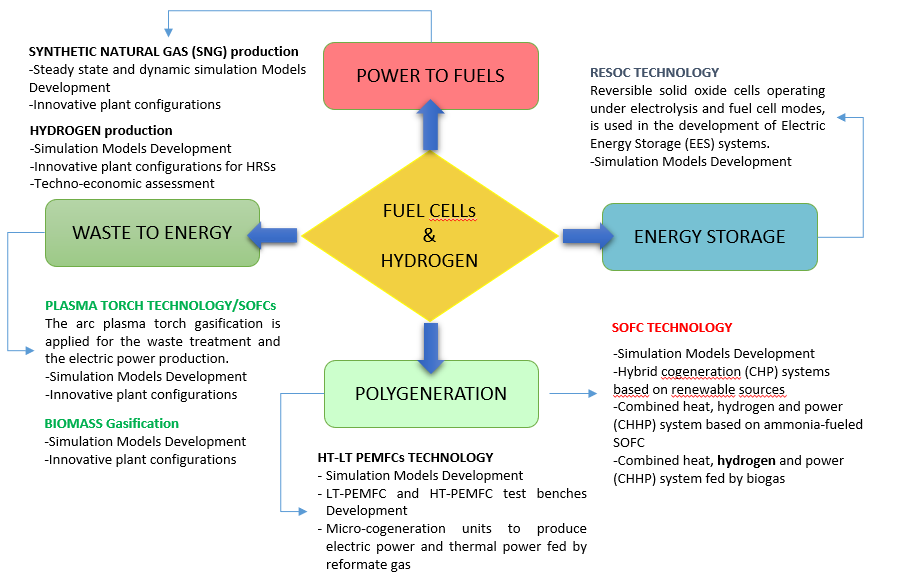
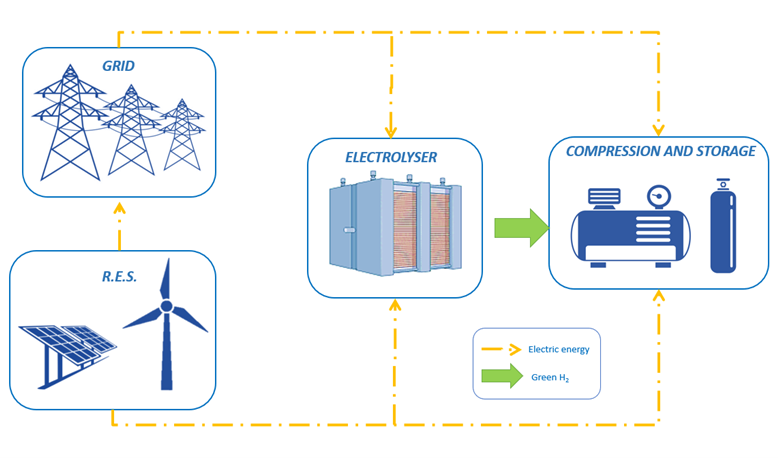
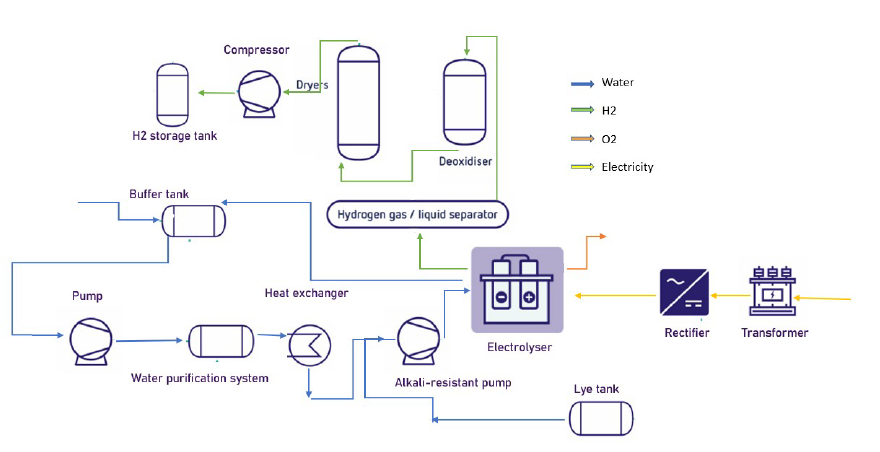
Hydrogen production systems
Hydrogen production systems are complex entities, made up of carefully-chosen components dedicated to obtaining a clean, carbon-free fuel to be used in various applications. Some of the hydrogen production plants - specifically the ones using electricity to split water into its two gaseous components - constitute one of the current main areas of interest, thanks to their immense potential as a temporary solution for the storing of excess energy produced from renewable energy sources.
Our group is exploring this fascinating and innovative technology in every detail, specifically focusing on:
- Numerical modelling of hydrogen production plants, using either hydrocarbons (steam-reforming, autothermal-reforming, partial oxidation) or water (electrolysis) as raw material;
- Optimization and comparative analyses of hydrogen production processes, taking into account both energy efficiency and environmental impact indices.
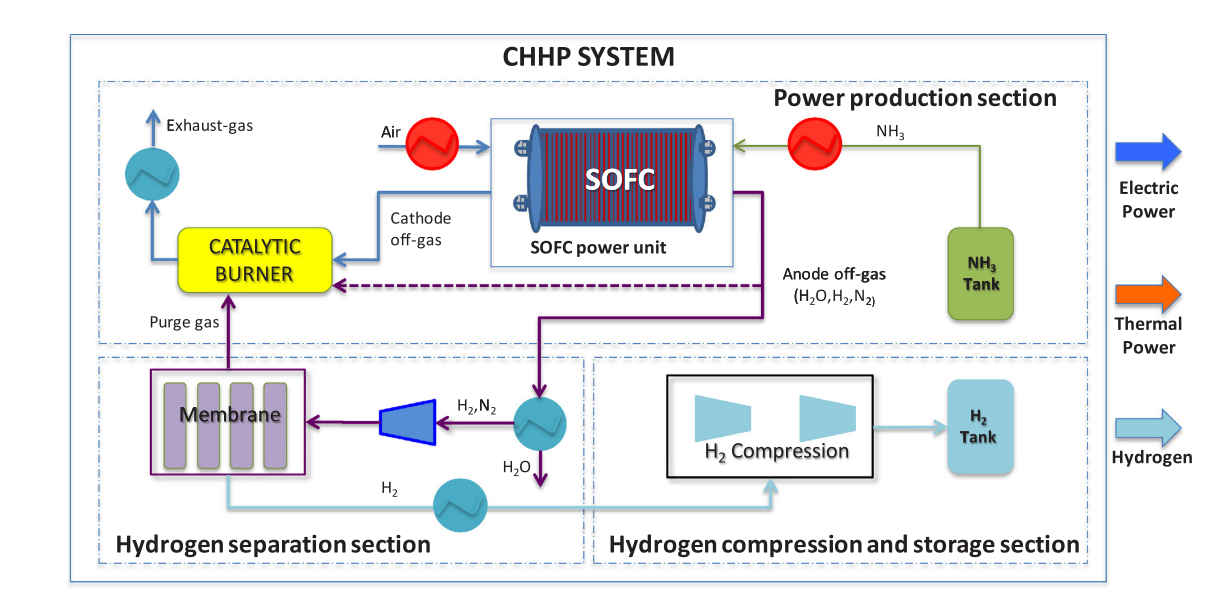
Fuel cells
Nowadays, fuel cells represent one of the most attractive options in the energy systems’ field, thanks to their high energy efficiency and noticeable environmental benefits. Their final uses can vary from mobility (automotive and marine sectors) to stationary applications, therefore acquiring an in-depth know-how on their working principles and the possibility of coupling them with other energy systems is absolutely paramount.
Our group is excitingly exploring this technology, focusing on how to reduce its challenges and maximize its potential. Our research activities include:
- Numerical modelling of different types of fuel cell systems;
- Optimization and comparative analyses of fuel cells, taking into account both energy efficiency and environmental impact indices.
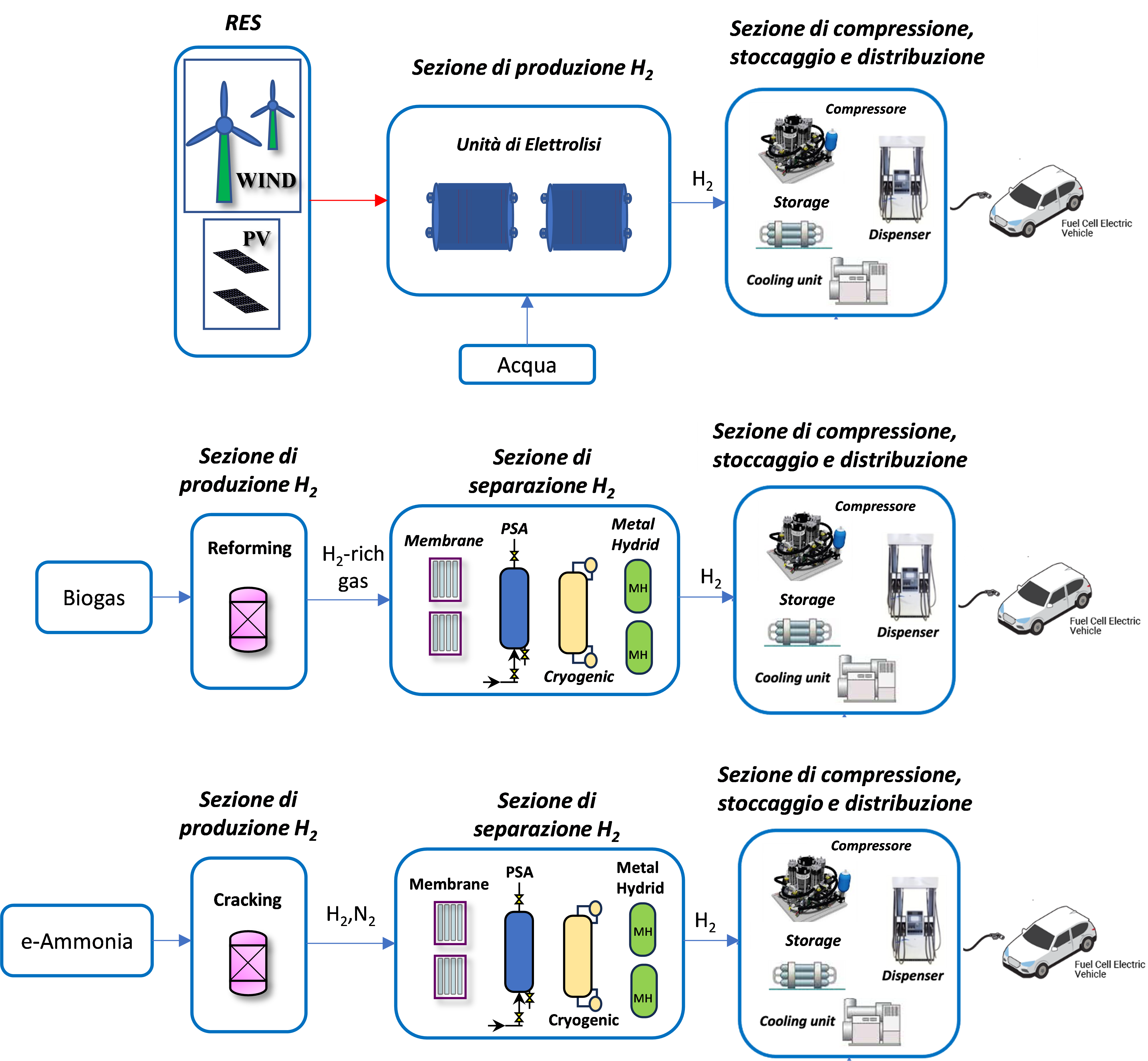
Refilling stations:
One of the most exciting and innovative topics our group is working on concerns green hydrogen on-site refueling stations. We are exploring their potential related to the energy transition process that is currently taking place, carefully studying all of their sections:
- Production, both from electrolysis (thanks to electricity coming from the grid or dedicated wind/photovoltaic systems) and thermochemical processes (reactions involving e-fuels, such as e-ammonia or biogas with zero CO2 net emissions);
- Compression, storage and distribution;
The research activities we have been conducting include:
- Evaluation of the state-of-the-art technologies related to components and systems’ configuration;
- Generation of thermodynamic models aimed at conducting in-depth optimization analyses;
- Comparative analyses of systems’efficiencies in case of different production sources (electrolysis or thermochemical processes)